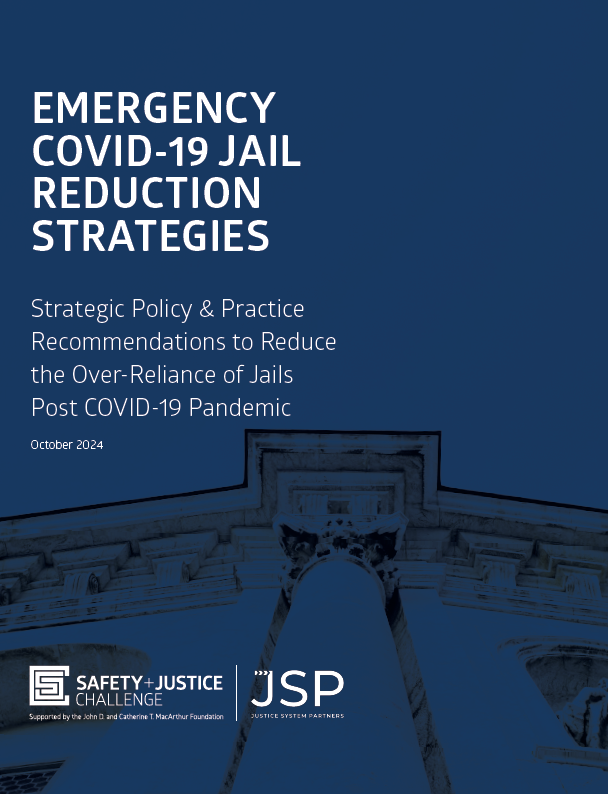All Resources

Emergency COVID19 Jail Reduction Strategies - Strategic Recommendations
Sarah Jensen, Shannon Magnuson
In response to the COVID-19 pandemic, jails across the U.S. implemented emergency measures to reduce populations and mitigate virus transmission. Multnomah County, Oregon, reduced jail bookings by 50% during this time by implementing several key strategies. These efforts were informed by the county’s participation in the Safety and Justice Challenge (SJC), which encouraged collaboration among stakeholders to implement innovative approaches to reducing the jail population. Justice System Partners (JSP) conducted case study of Multnomah County to examine the impact of jail reduction strategies. The study found that participation in the SJC assisted Multnomah County in collaborating to implement strategies, and that many of the approaches Multnomah County used were expansions of pre-existing strategies developed through their work in the SJC. Additionally, researchers found that, contrary to popular belief, jail reduction did not lead to an increase in crime.
In addition to the research findings, JSP also developed policy and practice recommendations to assist criminal legal system stakeholders in reducing the over-reliance on jails following the pandemic. These key recommendations include implementing deflection programs, decreasing reliance on arrest for low-level, non-person misdemeanor offenses, increasing accessibility to court appearances, reducing bookings for non-crime related events, such as failures to appear to court hearings and technical violations of community supervision conditions, and investing in inter-agency collaboration.
